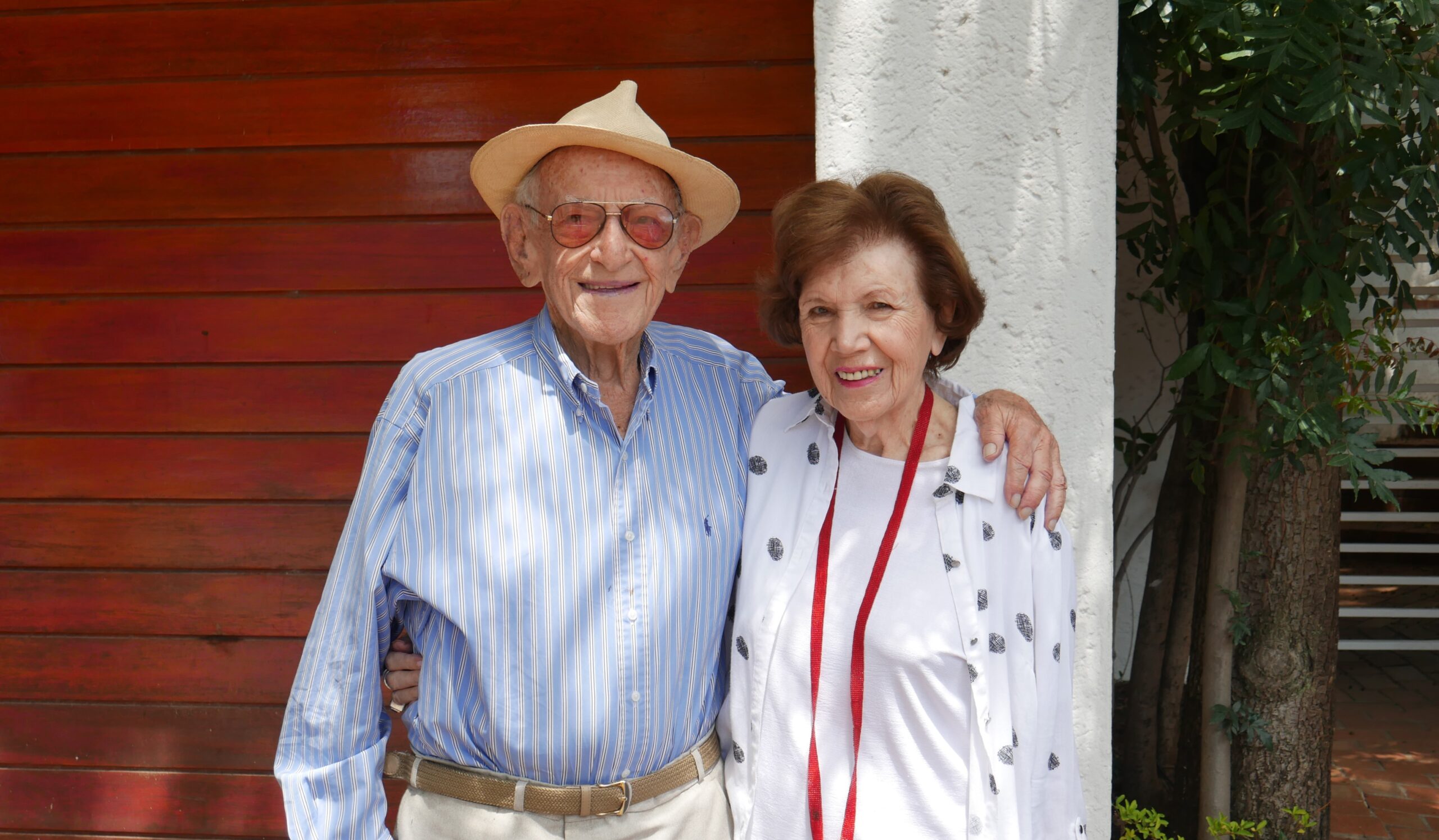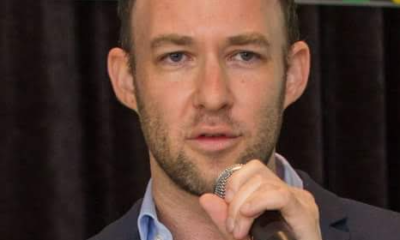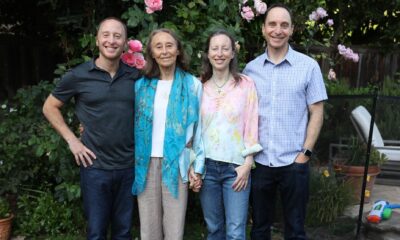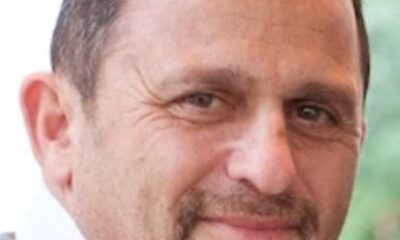
Tributes

Six decades of caring: Selma Browde’s extraordinary life
In 2016, I published a book about my grandfather, Jules Browde, a legendary advocate who made his name fighting for human rights in the courtrooms of apartheid South Africa.
In one of our interviews, I asked him why he thought his career had taken the direction it had. It struck me that this was by no means self-evident: there were many lawyers with exactly his background – the child of Jewish immigrants from Lithuania – who didn’t take this route.
A week later, my grandfather handed me a piece of foolscap paper on which he had listed three people he called “ethical inspirations”.
The first was his father, who, he said, taught him by his own example “to treat people fairly and decently, irrespective of the colour of their skin”. The second was Colin Gluckman, one of the early leaders of the Habonim youth movement in South Africa, who had introduced him at a very early age to ideas of Jewish ethics, particularly mishpat (justice), chesed (kindness), and rachamim (compassion). The third and “thankfully most prolonged source of inspiration” was his wife, my grandmother, Selma Browde.
“Caring for others,” he had written, in his jagged, deliberate cursive, “has occupied most of her days and, indeed, even the hours when one might have expected her to be asleep. It’s her example of service to others that was directly responsible for most of the worthwhile activities in which I became involved during the course of my career.”
In the few weeks since Selma passed away – aged 97 – on 26 December last year, it has become clear to me that Jules was only one – though a special one – of many, many people around the world for whom my grandmother was a crucial influence. In literally hundreds of messages – on Facebook, on WhatsApp, and email – we continue to read about the shapes her influence has taken.
In her chosen fields of medicine, politics, and social activism, Selma was a ground breaker, a pathfinder, a troublemaker, a woman who worked relentlessly, often sleeplessly, as my grandfather said, to care for the sick, to provide solace to the suffering, and, always, to speak for those whose voices are silenced.
Born in 1926 in Cape Town to a Jewish family with roots in Lithuania and Ukraine, Selma studied medicine in Cape Town and, later, Johannesburg. She interrupted her medical studies in the late 1940s to marry and have two sons – Ian and Alan. Her third son, Paul, would be born a decade later.
Selma graduated as a doctor from the University of the Witwatersrand in 1959. She received her specialist degree in radiation oncology in 1967, and was then appointed as a senior consultant and lecturer in that department.
In 1972, at the urging of her friend, Progressive Party (PP) MP Helen Suzman, she stood for election to the Johannesburg City Council on a PP platform in spite of not being a member of the party. She had been a member of the Liberal Party, which had disbanded in 1968 rather than conform to a new law outlawing mixed-race parties.
She told the story often – of how she was convinced that she stood no chance of winning, and of her surprise when, of 14 PP candidates on the roll, she was the only one to win. She soon came to be seen as the unofficial council representative of the African, Indian, and Coloured communities in and around Johannesburg.
Selma retained her post in the radiation oncology department and pursued her council work from a home office, to which as many as 20 people from various townships came daily, seeking help or advice. She laughed about how much coffee she drank during that period.
And she made things happen. In 1973/1974, she initiated a process that led to the comprehensive electrification of Soweto by a private company. Among other projects on behalf of the disenfranchised, she secured access for Indian soccer teams to municipal fields, and helped remove the corrupt quota system for access to education above Standard 6 (Grade 8) level in Soweto. In 1974, she was elected to the Transvaal Provincial Council, one of only two progressives on the council.
Selma also pursued her activism beyond the confines of the city and provincial councils. Among many other initiatives, she joined human rights lawyer Shun Chetty to start Action to Stop Removals (ActStop) in 1976, to fight forced removals conducted under the Group Areas Act; and, with Dr Nthato Motlana, she started the Hunger Concern Programme, which subsequently became Operation Hunger.
For years after her retirement from formal politics in 1978, she continued to be moved to action. In 1988, she founded the Soweto Electricity Advice Centre which exposed the faults and corruption in billing and achieved a change in the system to flat-rate billing.
After leaving the council, she returned to her post in the radiation oncology department, and was appointed professor and head of department at Johannesburg General Hospital.
After Selma retired from her hospital post in 1986, she became passionately involved in palliative medicine, with a focus on pain management at all stages of disease. In 1998, she founded the Palliative Medicine Institute at Chris Hani Baragwanath Hospital. She also persuaded the heads at Johannesburg and Chris Hani Baragwanath hospitals to set up palliative care teams and personally trained numerous nurses in this area.
On discovering that her son, my uncle Paul, was living with HIV, Selma focused her attention increasingly on HIV/AIDS and tuberculosis in South Africa. In 2000, she founded the nongovernmental organisation Parents for AIDS Action, which became known as Community Action as its focus widened to tackle these linked epidemics.
Selma also maintained an abiding interest in Israel. In recent years, she was active in organisations such as Save Israel, Stop the Occupation, and the Jewish Democratic Initiative, animated by a desire to find a just and peaceful resolution to the Israeli-Palestinian conflict.
In 2004, she was awarded an Honorary Doctorate of Science by Wits University. The citation by the award committee is a succinct and moving summary of my grandmother’s public life, which spanned an astonishing six decades:
“Dr Browde has dedicated her life to the promotion of health. She has done this as a cancer therapist and researcher, striving to improve the cures, care, and palliation available to patients. She has done it as a politician, working to improve the living conditions that determine the health of the poor. She has done it as a caring human being, spreading the word that suffering can be alleviated, teaching health professionals and supporting … those who face death. She has done it as an activist who has succeeded in changing policies and attitudes.”
And as a grandmother, she gave me more than I can say. Not least among these gifts was the lesson, taught in the last few years, that the human heart, if kept in practise, can remain open and supple until the end.
Selma Browde was buried on 27 December 2023 at the Westpark Cemetery in Johannesburg besides Jules, her beloved husband of almost 70 years. She is survived and forever missed by her three sons, seven grandchildren, and five great-grandchildren.
- Daniel Browde is Selma Browde’s grandson.











orit jacobson
January 30, 2024 at 2:01 am
Selma Browde – a life well lived. Condolences to Ian, Alan and Paul. She was a great human being